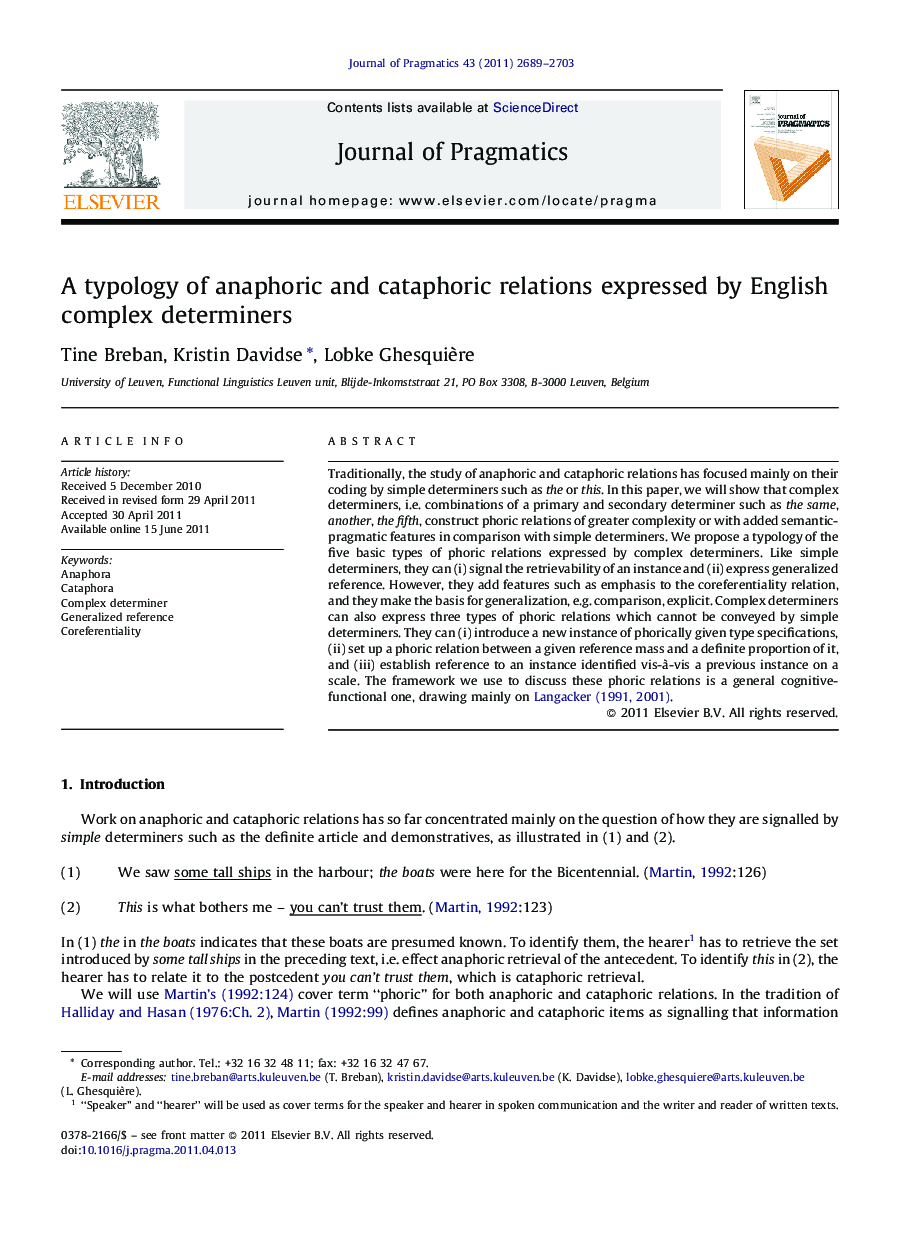| Article ID | Journal | Published Year | Pages | File Type |
|---|---|---|---|---|
| 933236 | Journal of Pragmatics | 2011 | 15 Pages |
Traditionally, the study of anaphoric and cataphoric relations has focused mainly on their coding by simple determiners such as the or this. In this paper, we will show that complex determiners, i.e. combinations of a primary and secondary determiner such as the same, another, the fifth, construct phoric relations of greater complexity or with added semantic-pragmatic features in comparison with simple determiners. We propose a typology of the five basic types of phoric relations expressed by complex determiners. Like simple determiners, they can (i) signal the retrievability of an instance and (ii) express generalized reference. However, they add features such as emphasis to the coreferentiality relation, and they make the basis for generalization, e.g. comparison, explicit. Complex determiners can also express three types of phoric relations which cannot be conveyed by simple determiners. They can (i) introduce a new instance of phorically given type specifications, (ii) set up a phoric relation between a given reference mass and a definite proportion of it, and (iii) establish reference to an instance identified vis-à-vis a previous instance on a scale. The framework we use to discuss these phoric relations is a general cognitive-functional one, drawing mainly on Langacker, 1991 and Langacker, 2001.
► We show that complex determiners can construct more intricate phoric relations than simple determiners. ► We argue that they add semantic-pragmatic features to relations codable by simple determiners. ► We propose to our knowledge the first typology of phoric relations expressed by complex determiners. ► We contribute to an enhanced general understanding of phoric relations and referent management.
